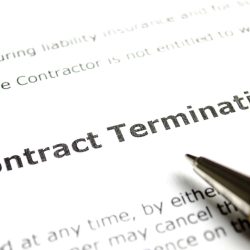As startups evolve and seek growth opportunities, acquisitions become a strategic avenue for expansion. In this landscape, intellectual property (IP) due diligence takes center stage. It serves as a critical process that can make or break the success of an acquisition. Whether you find your startup on the buying or selling side of an acquisition, understanding and navigating the intricacies of IP due diligence is essential for a smooth transition and the preservation of the value of your IP assets.
The Foundation of Intellectual Property Due Diligence
At the heart of any startup acquisition lies its intellectual property—comprising patents, trademarks, copyrights, and trade secrets. The due diligence process is a meticulous examination of these assets to evaluate their strength, risks, and overall value. For buyers, it ensures they are acquiring assets free from undisclosed encumbrances. For sellers, it can be an opportunity to showcase the value and potential of their IP portfolio.
Assessing the Intellectual Property Portfolio
For both buyers and sellers, a comprehensive assessment of the intellectual property portfolio is paramount. This involves scrutinizing the scope and strength of patents, the distinctiveness of trademarks, the originality of copyrighted works, and the measures in place to protect trade secrets. A thorough evaluation provides a clear understanding of the IP landscape, enabling informed decisions regarding the acquisition.
Risk Analysis and Mitigation Strategies
IP due diligence goes beyond a mere inventory of assets; it entails a detailed risk analysis. Buyers need to identify potential legal challenges, such as pending infringement lawsuits or disputes over ownership. Sellers, on the other hand, must proactively address any potential red flags to enhance the perceived value of their IP assets. Mitigation strategies may include resolving pending disputes, fortifying IP protection measures, or negotiating indemnification clauses in the acquisition agreement.
Regulatory Compliance and Licensing Agreements
Compliance with relevant regulations is a key aspect of IP due diligence. This involves ensuring that the startup’s intellectual property aligns with industry standards and legal requirements. Additionally, the assessment should include a thorough review of licensing agreements. Buyers need to verify that licensing arrangements are clear, valid, and transferable. Sellers must ensure compliance with existing agreements and consider the impact on the acquisition.
Employee and Contractor Agreements
The people behind the intellectual property are integral to its value. IP due diligence extends to reviewing employee and contractor agreements to confirm that the startup has clear ownership of the created IP. Buyers need assurance that the workforce contributing to the IP is bound by enforceable agreements, while sellers must showcase the solidity of these agreements to enhance the perceived value of their IP.
Trade Secrets Protection
The protection of trade secrets is often a critical aspect of a startup’s intellectual property. Buyers need assurance that robust measures are in place to safeguard these secrets, including confidentiality agreements and restricted access. Sellers, in turn, should emphasize the strength of their trade secret protection strategies to instill confidence in the value of their IP assets.
Contractual Agreements and Due Diligence Timelines
In the fast-paced world of startup acquisitions, time is of the essence. Establishing clear timelines for the due diligence process and ensuring that contractual agreements align with these timelines is vital. Delays can erode the perceived value of the IP assets, making it crucial for both parties to manage expectations and adhere to the established timelines for a smooth and efficient acquisition process.
Communication and Transparency
Effective communication and transparency are fundamental to a successful acquisition. Buyers and sellers should maintain open lines of communication throughout the due diligence process. For sellers, being transparent about the state of their intellectual property and proactively addressing any identified risks builds trust. Buyers, in turn, should communicate their expectations clearly and seek clarification on any aspects of the IP portfolio that require further scrutiny.
Post-Acquisition Integration
The culmination of a successful IP due diligence process is the acquisition itself. However, the journey doesn’t end there. Post-acquisition integration is a critical phase where the buyer assimilates the acquired startup into its operations. Smooth integration involves aligning IP management practices, integrating IP databases, and ensuring that the transition is seamless for both internal teams and external stakeholders.
Conclusion
In the intricate dance of startup acquisitions, intellectual property due diligence takes center stage, determining the success and longevity of the partnership. Whether you find yourself on the buying or selling side, a thorough understanding of the IP due diligence process is essential. By assessing the intellectual property portfolio, addressing risks, and adopting transparent communication, startups can navigate the complexities of acquisitions successfully. Intellectual property, often the lifeblood of a startup, deserves meticulous attention during acquisitions, ensuring a seamless transition and the preservation of its intrinsic value in the evolving landscape of innovation and growth.





